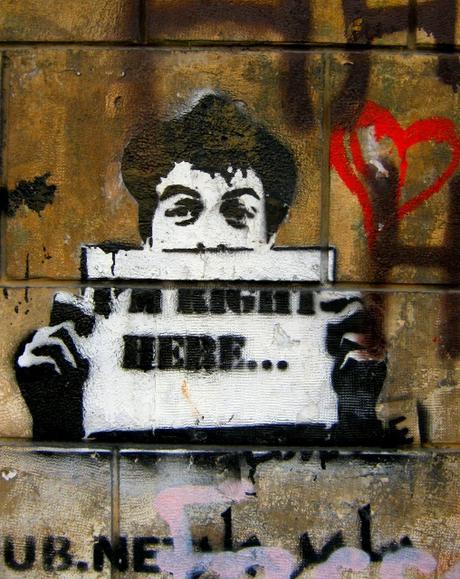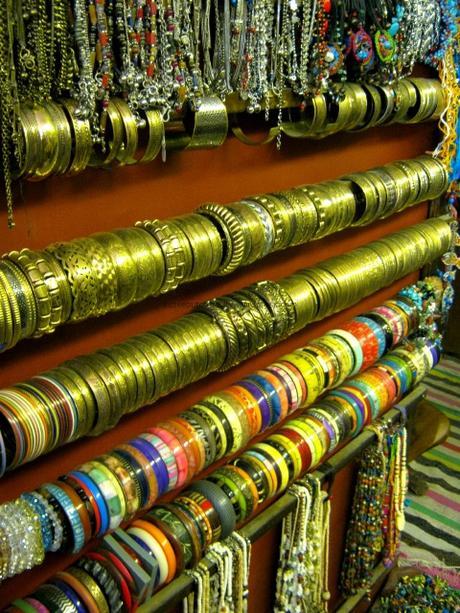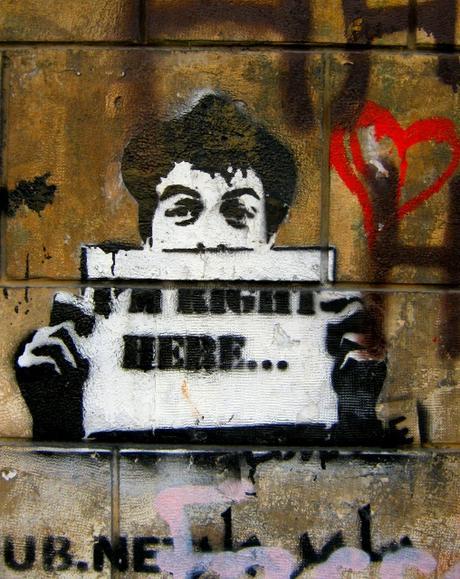
When it comes to travelling, I have often found myself in rather distressing situations, where a combination of excessive optimism and poor arithmetic finds me penniless in a foreign country. No credit card, no backup plan, no savemebaba.
In Beirut's case, I found myself with just US$150 to live on for three days. Seasoned travelers to the city and locals will laugh hysterically at this, and I can hardly blame them considering Beirut was reported to be the most expensive city in the whole wide Middle East, even beating Dubai.
So clearly I was screwed. Yet, funnily, I was not.
You can call it seriously good luck, or favorable circumstances; but I ended up having a wonderful time in Beirut, seeing a lot of the city on a non-existent budget.
Here's how.
First of all, have friends in Beirut. If you're not planning on couchsurfing Beirut, having a place to crash at will save serious cash. Plus your friend will act as a local guide, showing you the real side to the stereotype of flashy, ostentatious Beirut.
I had a wonderful time walking around Hamra with my Lebanese friend, taking photos (predictably) of the graffiti around the American University in Beirut, stopping for cherry ice cream at a nearby stall and browsing through a dusty thrift shop selling vintage Beirut t-shirts for 20,000LL. We lunched at T-Marbouta, where she bemusedly watched my cooing about their delicious, creamy hummus (I have an embarrassing and incurable obsession with hummus) and their batata bel kosbara. The meal was cheap for Beirut standards, working out to 15,000LL each.
Near AUB, we ventured into Ants, a tiny shop filled floor to ceiling with exotic jewellery and fabrics brought back from Thailand and India. Incense filled the space as I had to be forcefully removed from the shop after trying on copper rings; intricate bangles and batik print skirts that I clearly couldn't afford. Despite my friend's best efforts, I did walk away with a scarf. That I paid for.
We then trotted down to Dar El Mousawer, a beautiful villa between Hamra and Clemenceau that is part-café, part-bookstore, and part-photography studio. After picking up copies of Salamander, a quirky Lebanese comic strip, and browsing through the dozens of Lebanese bands' CDs, we checked out the photography exhibition on the second floor and stumbled into a room full of antique and limited edition cameras (cue hyperventilation).
Later that night, another friend took me bar-hopping along the supposedly bohemian but very trendy Gemmayze, where we passed the long queues outside of Ahwet Laila and tried to avoid the reckless Vespa drivers - the people of Beirut have fully embraced the Vespa, and some try to make it look badass when in fact it's very pretty - to stop in Margherita on Gourand Street, the first and only non-smoking restaurant I found in Beirut, followed by Torino Express down the street, a tiny, dark bar where the bartender has piercings and looks like Jesus, the music is loud and the clientele is achingly hip.
The following night, I was taken to BO18, an underground nightclub in Quarantine for a quintessential Beirut nightlife experience. This nightclub's design is described as 'war architecture', and it's famous for its open ceiling and its cheesy eighties music night. Once inside, I found the Lebanese dressed to the nines and dancing on tables, just as the stereotype goes. Being a fan of tables, I was thoroughly impressed.
Second of all, it's good to be an Egyptian here. I'm not used to being treated like a celebrity purely for my Egyptian nationality and accent; but that's exactly what happened here. People cooed at my accent, pleaded me 'ehky bil masry, shu mahdoumi', and me, being a fan of the Lebanese accent, complied.
Apart from strangers being ridiculously hospitable and buying me drinks/food purely for my accent, everyone felt compelled to introduce me to other Egyptians at their tables - thinking that three days away had left me homesick already- and they watched with fascination as we conversed 'just like they do in the mosalsalat'. I felt part-puppet, part-spoiled poodle, but I enjoyed it immensely, especially at Metro Al Madina, a cool though cramped underground bar in Saroulla building, Hamra, where the uncomfortable seats fold like bus seats beneath the low glass tables.
Driving through Beirut at night is beautiful, especially if you run across busking musicians on street corners of Hamra, or catch a glimpse of the mountains in Jbel with their cherry trees as you drive along the coast to Byblos. Traffic in the city is a nightmare during the day, but I have a high threshold for traffic thanks to Cairo.
Third of all, take a service taxi. Taxis are expensive and will drain most of your budget, and most of them drive like they're fleeing a crime scene. You can use a cheap taxi service like Yorgo's (009611202270) and they'll give you their rate over the phone, or you can opt for the service (pronounced serveees), which is a taxi that you share with several other passengers and usually pay 2000LL per person.
Fourth of all, find a public beach. The public beach at Byblos just after Edde Sands is everything Agami used to be in the eighties and nineties. Crowds of people swimming, sunbathing and playing racket, where no one bothers you or makes you feel bad for wearing a bathing suit. For something a little more ostentatious and expensive, my friend took me to Hotel St. George in Ein Meraisa, which she promised to be another quintessential Beirut experience. True to her word, I found scores of tanned, buff, and silicone Lebanese bodies lounging by the hotel pool and smoking shisha. It's apparently a Lebanese thing, and I was fascinated. Entrance to the pool costs 25,000LL and includes nothing, not even towels. But it was worth to get a feel of the Lebanese high life and check out the marina's docked yachts nearby.

During my time in Beirut, I was struck by how totally diverse the people are. 'No Lebanese is one and the same,' my friends told me, whether in their political affiliations or religious beliefs. It was strange for me to see a woman in full veil standing nonchalantly next to a kissing couple on the street, but this is Beirut, in all its shrapnel-filled buildings, sprawling beaches and narrow alleys filled with tiny bars- glory. I was fascinated by how resilient and elastic this city seems to have been - with civil wars spawning over the past three decades and with current tensions rising, locals shrug it off and share stories of nonchalantly partying through the bombings. During my night in Hamra, apparently a shootout had left one man killed, yet no one heard or noticed anything. We didn't run for cover, or tweet frantically or freak out Egyptian-style. Life went on lazily and care-free, Beirut-style.
Having survived the city on my ridiculous budget, I'm excited to go back soon; this time with enough money to actually eat a full meal.
How to Speak LebaneseTekram Einak - You're welcome
Lahsek Teezy - Kiss my ass
Yaateek el 'afya- Yaateek el Se77a/ May you have good health
'Elke - Gum
Msakkar - Closed
Aaj'aa - Traffic
Kess Ekhtek - Ask another Arab what that means. It's about your sister.
[The Lebanese have the most imaginative, elaborate and dramatic swearwords I have ever heard- not only will they tell you what they want to do to which part of you, but also what will happen to your family, your neighbours and your dog. In the rain. On a washing line. God bless them]

